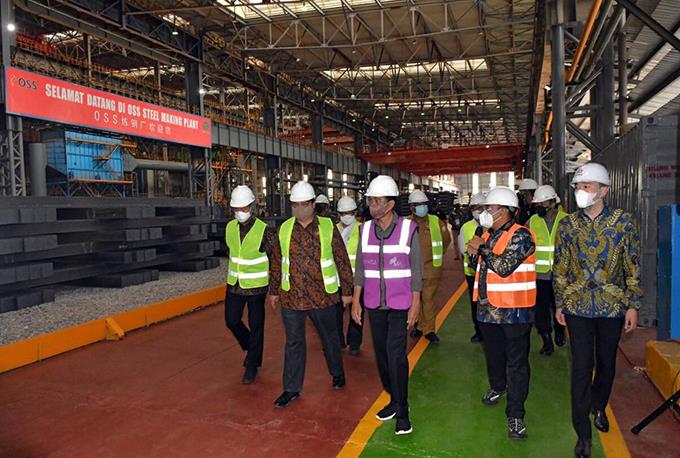Indonesia Thinks Its Nickel Export Ban Is Working
Date
12/11/2023 2:21:11 AM
(MENAFN- Asia Times) Economists have long advised Indonesia to reduce its reliance on commodity exports and promote economic diversification. The Indonesian government has been pursuing this through the establishment of special economic zones and tax holidays.
But in 2020, the Covid-19-induced recession led to a more draconian diversification approach with a ban on the export of all unprocessed nickel.
Using an export ban as an industrial policy instrument is controversial since it creates market distortions and its goals must be carefully stated and measured.
Nickel is an important material for the production of most rechargeable batteries and its significance in the global supply chain has increased dramatically with the pursuit of global net-zero ambitions.
As Indonesia is the largest producer of nickel ores, President Joko Widodo (Jokowi) is sanguine about leveraging this advantage to increase the domestic value added from the nickel ore export ban.
Domestic value creation is cited as Jokowi's primary goal. On paper, the results of the export ban are striking. Almost US$14 billion has been invested in nickel smelter capacity in Indonesia.
Maluku Utara and Sulawesi Tengah, Indonesia's nickel downstreaming provinces, experienced double-digit growth rates in 2021, driven primarily by investment in the industry. Jokowi has highlighted how the ban has seen a 30-fold increase in the value of Indonesia's nickel-related exports.
Calculating domestic value added is not straightforward. Comparing nickel ore export values and their derivatives is misleading since downstream products also embody the cost of energy needed for production and other inputs.

President Joko Widodo (third left) during a visit to the PT Obsidian Stainless Steel (OSS) production line, during a series of events for the inauguration of the China-invested nickel smelter factory PT Gunbuster Nickel Industry (GNI) in Konawe, Southeast Sulawesi, in a file photo. Image: Twitter / Doc Palace / Agus Suparto
MENAFN11122023000159011032ID1107568963

Legal Disclaimer:
MENAFN provides the information “as is” without warranty of any kind. We do not accept any responsibility or liability for the accuracy, content, images, videos, licenses, completeness, legality, or reliability of the information contained in this article. If you have any complaints or copyright issues related to this article, kindly contact the provider above.